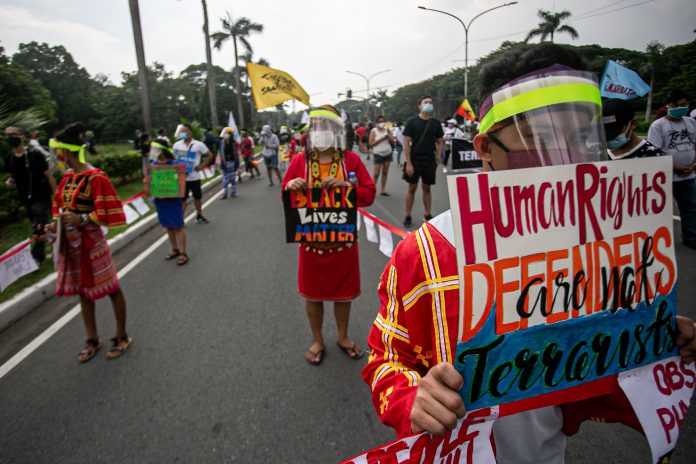The Philippine Department of Foreign Affairs (DFA) found itself under scrutiny as the Indigenous Peoples (IP) advocacy group, Katribu Kalipunan ng Katutubong Mamamayan ng Pilipinas, questioned the government’s sincerity in cooperating with international human rights mechanisms.
The skepticism arose in response to the DFA’s recent statement highlighting the government’s commitment to open cooperation during the visit of the UN Special Rapporteur (SR) on Freedom of Opinion and Expression.
Beverly L. Longid, the National Convenor of Katribu, challenged the government’s claim of sincerity, pointing to the lack of action on recommendations made by previous UN Special Rapporteurs.
Longid emphasized the urgent need for a review and repeal of the Anti-Terror Act of 2020 (ATA) and an end to the practice of red-tagging IP leaders. She also called for an immediate cessation of militarization and bombings targeting IP communities.
Contrary to the government’s assertion of good faith cooperation, the existence of the unconstitutional ATA, which arbitrarily labeled activists as terrorists, raised concerns, according to the group.
Katribu said that the findings of UN SR on Climate Change Ian Fry, during his November 2023 visit, exposed alarming human rights violations against IP and environmental advocates.
The group claimed that the documented extrajudicial executions of 75 environmental human rights defenders, including Indigenous Peoples, contradicted the Philippines’ commitment to ensuring a safe and sustainable environment.
Katribu also warned against “a disturbing trend” of consecutive abductions and enforced disappearances that has emerged under the Marcos Jr. administration.
It said that the reported 97 killings and massacres of IP and advocates by state security forces, coupled with bombings and violence against resource-rich ancestral lands, indicated a severe crackdown on dissent.
The manipulation of Free, Prior, and Informed Consent (FPIC) processes in extractive industries further undermined Indigenous communities’ freedom of expression and consent, the group added.
“A crucial step in fostering a climate of respect for human rights involved the immediate release of IP political prisoners,” said Longid, highlighting the unjust incarceration of those opposing destructive projects on IP lands.
Irene Khan, UN Special Rapporteur on Freedom of Opinion and Expression, is in the country for an official visit until Feb. 2. She is expected to conduct dialogues with various people’s organizations, including members of the media.









